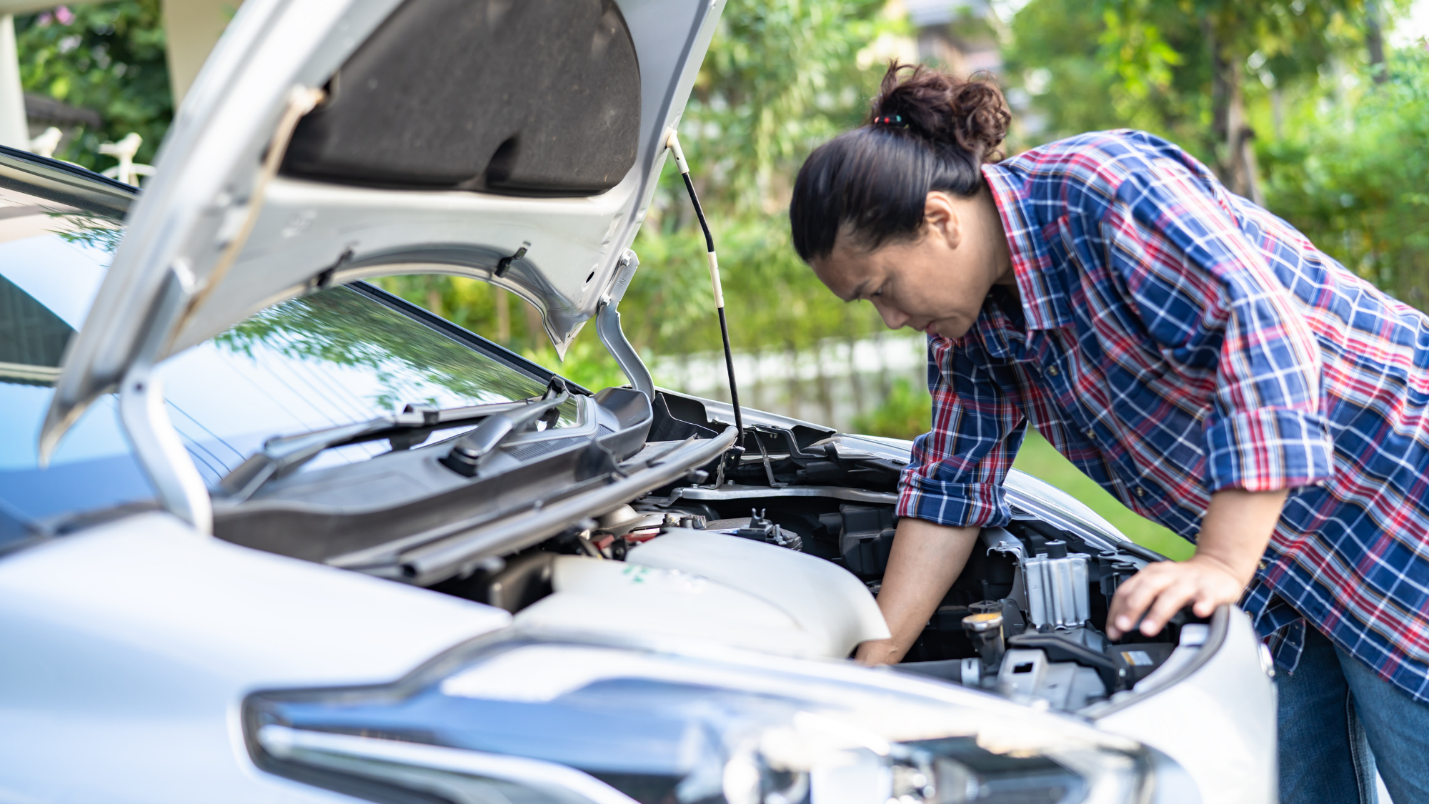Transmission failure is one of the most dreaded car problems for any driver. Having a faulty transmission can mean costly repairs and lengthy downtimes that disrupt your routine. Having a reliable vehicle is essential and understanding what causes transmission failure and knowing how to prevent it can save you both time and money. Does your vehicle need a transmission tune up near me? Read our guide below to learn the most common reasons behind transmission failure and tips you can use to keep your car running smoothly.
What Does a Transmission Do?
Your car’s transmission is responsible for transferring power from the engine to the wheels. When you need more speed, your car’s transmission adjusts (either manually with a stick shift or automatically through the vehicle’s system) to enable your car to accelerate.
Manual Transmission
Manual transmission vehicles are sought after by driving enthusiasts for their improved control. As for what you should know about transmission tune ups, manual transmissions are simpler in design and generally easier to repair.
Automatic Transmission
Easy to use, especially in heavy traffic, an automatic transmission provides a smoother driving experience. However, they are more complex to repair.
What is Transmission Failure?
Transmission failure occurs when the system’s components are damaged or worn out. When this component fails, it can leave your car unable to accelerate effectively, resulting in unsafe driving conditions. If left unattended, total engine failure is possible.
The Most Common Causes of Transmission Failure
Some of the most common causes of transmission failure include:
Low or Contaminated Transmission Fluid
Transmission fluid lubricates and cools the components, ensuring smooth operation. Low fluid levels or contaminated fluid are leading causes of failure. Over time, debris, dirt, and metal shavings can accumulate, causing friction and overheating.
Preventative Tip
Check your fluid levels regularly and follow your car’s maintenance schedule for how often you should change your transmission fluid. If you notice discoloration or a burnt smell, it’s time for a change.
Overheating
Excessive heat is a transmission’s worst enemy. Overheating can result from towing heavy loads, stop-and-go traffic, or insufficient fluid levels. In Sonoma County’s warmer months, the risk of overheating increases, especially if your cooling system isn’t working efficiently.
Preventative Tip
Avoid overloading your vehicle and invest in a transmission cooler if you frequently tow or drive in high temperatures.
Worn-Out Clutch (Manual Transmissions)
For drivers with manual transmissions, a worn-out clutch is a common culprit. Repeated use leads to wear and tear, causing the clutch to slip or fail to engage properly.
Preventative Tip
Practice smooth gear changes and avoid riding the clutch. Have the clutch inspected during routine maintenance.
Faulty Torque Converter (Automatic Transmissions)
In automatic transmissions, the torque converter is vital for transferring power from the engine. A faulty torque converter can lead to slipping gears, overheating, or strange noises.
Preventative Tip
Pay attention to unusual symptoms and have your vehicle inspected promptly if you suspect torque converter issues.
Solenoid Problems
Transmission solenoids control the flow of fluid within the system. A malfunctioning solenoid can disrupt fluid distribution, causing slipping or rough shifting.
Preventative Tip
Ensure regular diagnostic checks during maintenance to catch solenoid issues early.
Neglected Maintenance
If you don’t maintain your car you are setting yourself up for transmission failure. Ignoring fluid changes, inspections, and minor repairs can lead to major problems over time.
Preventative Tip
Stick to your vehicle’s recommended maintenance schedule and consult trusted professionals like GreenTech Automotive in Sonoma County for expert care.
Driving Habits
Aggressive driving, frequent stop-and-go movements, or improper towing can strain your transmission. Over time, these habits accelerate wear and tear, leading to premature failure.
Preventative Tip
Adopt smoother driving habits, avoid excessive idling, and ensure you’re towing within your vehicle’s capacity.
Electrical Issues
Modern transmissions rely on electronic systems for optimal performance. Faulty sensors, wiring problems, or computer malfunctions can disrupt the system’s functionality, leading to misdiagnosis and further damage.
Preventative Tip
Have your vehicle’s electronics inspected if you notice irregular shifting or dashboard warning lights.
Leaks and Seals
Transmission fluid leaks are often caused by worn-out seals or damaged gaskets. Leaks not only reduce fluid levels but can also indicate more significant underlying issues.
Preventative Tip
Inspect your parking spot for fluid puddles and address leaks immediately to prevent further damage.
Natural Wear and Tear
Every transmission has a lifespan, typically ranging from 100,000 to 200,000 miles, depending on the make, model, and maintenance. Even with proper care, parts eventually wear out, necessitating repairs or replacement.
Preventative Tip
Consider your vehicle’s age and mileage when budgeting for potential transmission services.
Signs of Transmission Trouble
Detecting transmission issues early can save you from complete failure, so knowing the most important signs of transmission trouble is essential. Watch for these warning signs:
- Slipping gears or delayed engagement
- Unusual noises (grinding, whining, or clunking)
- Burning smell from under the hood
- Fluid leaks
- Check engine light illumination
- Shuddering or jerking during acceleration
If you experience any of these symptoms, don’t delay! Look for a transmission tune up near you and schedule a diagnostic inspection with a trusted local mechanic, like GreenTech!
How GreenTech Automotive Can Help
At GreenTech Automotive in Sonoma County, we specialize in diagnosing and repairing transmission problems for all makes and models. Our experienced technicians use advanced diagnostic tools to pinpoint issues accurately, ensuring timely and cost-effective repairs.
Why Choose Us?
- Expert diagnostics and repairs
- High-quality parts and fluids
- Transparent pricing and detailed explanations
- Commitment to environmentally friendly practices
Prevent Transmission Failure with GreenTech Automotive
Transmission failure can be a costly and stressful experience, but it’s often avoidable with proper care and maintenance. By understanding the common causes and taking preventative measures, you can keep your vehicle running smoothly for years to come.
If you’re a Sonoma County driver experiencing transmission issues or simply want to stay ahead of potential problems, trust GreenTech Automotive for expert service. Contact us today or give us a call at (707) 545-7076 to schedule your appointment and enjoy the peace of mind that comes with professional care.

